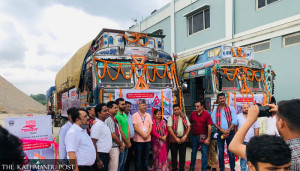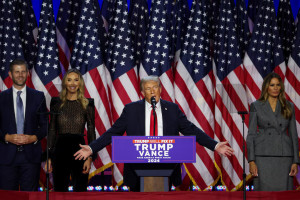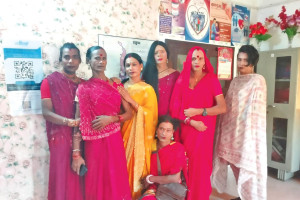World
Thailand's Senate will not be elected, charter drafters say
A committee appointed by Thailand's military rulers is laying the groundwork for a new method of choosing the country's leaders and lawmakers — and it doesn't involve giving voters much
Thailand's new 200-member Senate will be not elected directly by voters and the prime minister will no longer have to be an elected lawmaker, according to the committee that is drafting the new constitution.
Although the proposals have to be approved by the military-appointed National Reform Council, the Cabinet and the junta leaders, critics called it a setback for Thai democracy, saying it limited the people's power represented in the parliament.
Drafting of a new constitution is being carried out by the 36-person committee hand-picked by the junta after it overthrew a civilian government and abolished the last charter in last May's coup.
The committee on Thursday agreed that, under the new charter, the prime minister, who must receive more than half of the votes from the entire House of Representatives, does not have to be an elected lawmaker from the lower house, in case of a crisis.
The drafters agreed that "there should be an option in case the House of Representatives see that there really is a crisis, under which an outsider who is acceptable from every side can serve as the prime minister to successfully solve the problem," Kamnoon Sidhisamarn, the committee's spokesman, told reporters.
The committee resolved that a prime minister can only stay in the position for two consecutive terms.
The new senators will be chosen from pools of candidates, including former premiers, ex-military leaders and representatives from different professions, Lertrat Ratanavanich, the committee spokesman, told reporters Wednesday. They can only serve one six-year term.
Under the last constitution, half of the 150-member Senate was directly elected and the rest appointed.
Analysts said the action was designed to limit the power of elected politicians in the parliament, following years of landslide electoral triumph by political parties that were allied with former Prime Minister Thaksin Shinawatra, who was ousted in a 2006 coup.
The power struggle between the military-backed upper and middle-class and Thaksin's pro-democracy supporters has fueled the political conflict in Thailand that has often turned violent in the past decade.
Thaksin's sister, former Prime Minister Yingluck Shinawatra, led her Pheu Thai Party to a landslide victory in 2011.
"There's a likelihood that the Pheu Thai Party will win again once there's an election, so they are designing the constitution to do whatever it takes to limit the power in parliament of the elected politicians," said Kan Yeunyong, executive director of Bangkok-based think tank Siam Intelligence Unit.
The constitutional drafting committee is scheduled to finish the draft in April.




 12.12°C Kathmandu
12.12°C Kathmandu














